The rise and fall of NH's first first family at Portsmouth Athenaeum
New Hampshire's first first family is brought to light in all its glory and scandal in an exhibit opening Friday, April 14 in the Portsmouth Athenaeum's Randall Gallery.
The Wentworths came to the state in the 1630s and by the 1700s had become a powerful force.
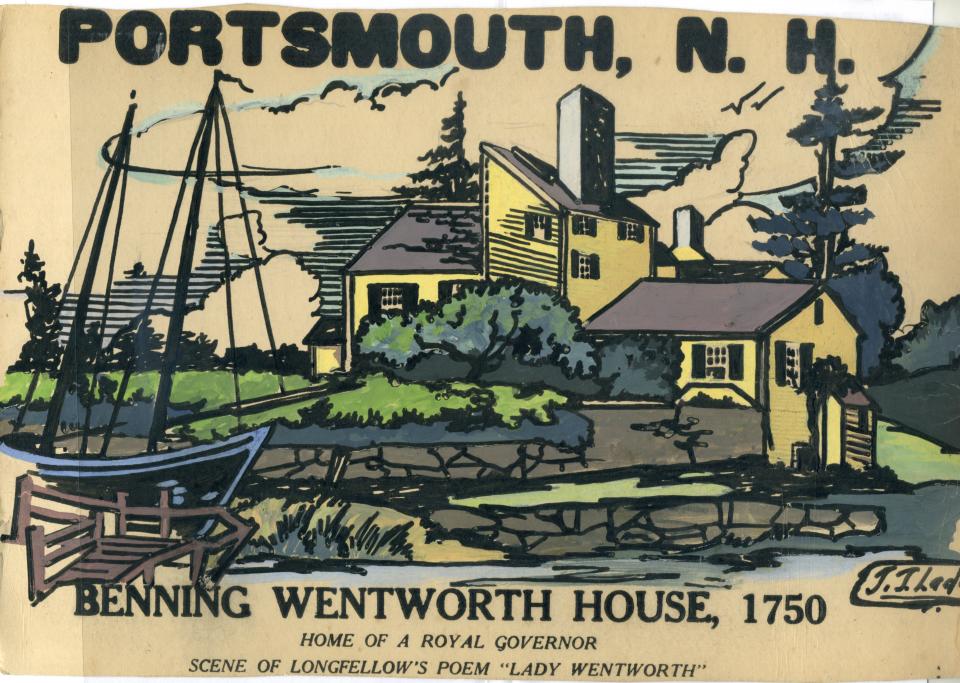
"I'm trying to bring family dynamics into the story," said Sandra Rux, who is curating the free exhibit, "The Wentworth Takeover: How One Family Dominated Portsmouth and New Hampshire 1715-1775."
And there are lots of dynamics − friends and adversaries referred to this ambitious tribe as the “Wentworth clan.”
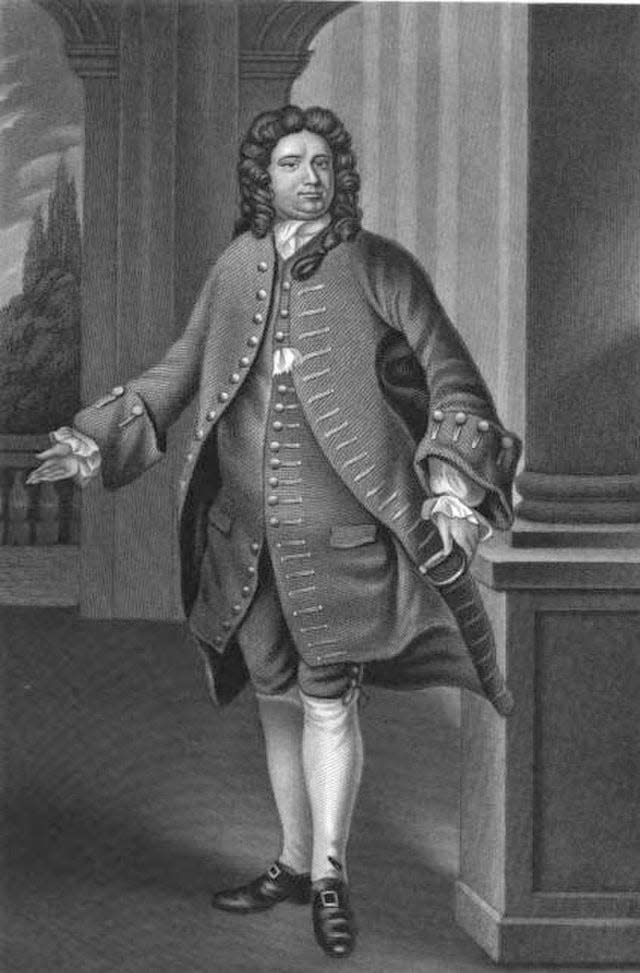
John Wentworth (1671-1730) of Portsmouth was appointed by Queen Anne as a member of New Hampshire's Council in 1712, a justice in 1713 and lieutenant governor in 1717.
He and his wife, Sarah Hunking, daughter of fellow council member Mark Hunking, had 14 children, all of whom lived to adulthood and married well-connected, talented and wealthy people.
In his book "History of New Hampshire," the Rev. Jeremy Belknap wrote of the lieutenant governor: "Under his mild administration we enjoyed great quietness."
John and Sarah's eldest son, Benning (1696-1770), would become New Hampshire's first royal governor and hold that office from 1741 to 1767 − the longest of any colonial governor.
"If he hadn't become governor, he might have gone to debtor's prison," Rux said of Wentworth's near-bankruptcy in 1739 when England declared war on Spain. "He was sending timber from Portsmouth to Spain. English merchants had invested in his Spanish venture."
Wentworth traveled to Madrid, and failed to persuade the Spanish government to pay up.
"That's when his allies conspired to make him governor of New Hampshire," Rux said. "He could make land grants, sell the land, and pay off his debts."
He issued 135 land grants west of the Connecticut River in what is now Vermont.
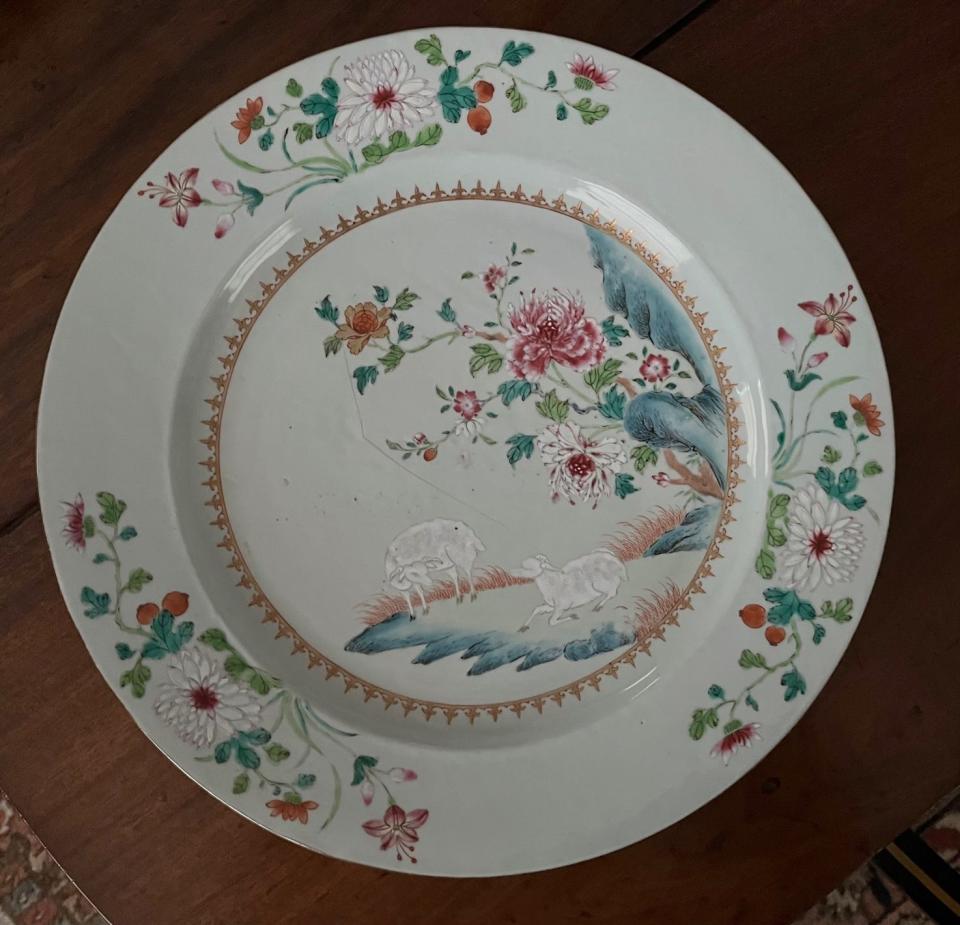
Wentworth also lives on in history thanks to marrying his housekeeper, Martha Hilton. The surprise ceremony came after a dinner party at his mansion on Portsmouth's Little Harbor in 1770. He was 64. She was 23.
A century later Henry Wadsworth Longfellow wrote the poem, "Lady Wentworth," in which he described Hilton as "A maiden, modest and yet self-possessed/Youthful, and beautiful, and simply dressed."
Among the dinner guests was the Anglican minister Arthur Brown, who seemed reluctant when told by the governor to perform the wedding ceremony.
"This is the lady; do you hesitate," Wentworth writes, "Then I command you as Chief Magistrate."
Wentworth died without children a decade later, bequeathing Martha his estate. A flurry of lawsuits from the Wentworth family followed, some successful. Rux said that it was likely to protect her inheritance that Martha soon married Michael Wentworth, a member of the family who had come from England and was living in Portsmouth.
"He was dashing, much younger than Benning, and known for racing horses," Rux said.
Benning's nephew John Wentworth (1737-1820) was in London when he was appointed the second royal governor in 1767. His first few years in Portsmouth were reasonably calm, and he received credit for being a diplomatic force as things heated up between colonists and the mother country.
But two months after "the shot heard round the world" was fired in Concord, Mass., a mob showed up at Wentworth's fine home on Pleasant Street in June 1775.
They pointed a cannon at the front door and demanded Wentworth relinquish a visiting and very unpopular Loyalist, Capt. John Fenton.
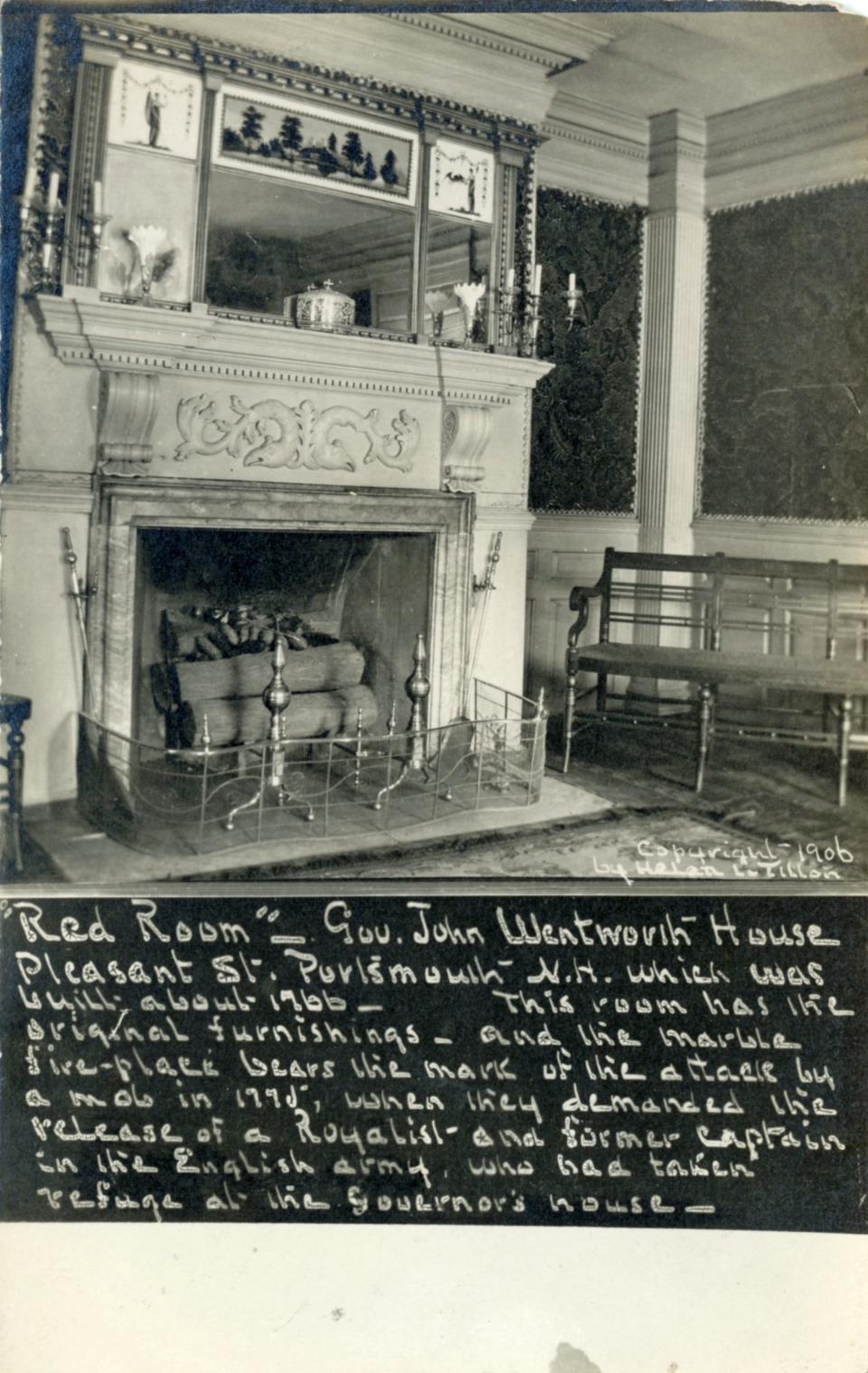
Fenton was seized by the mob and the Wentworths fled out the back door. The story is that the house − now the site of an assisted living facility − still has bullet holes and a damaged marble mantlepiece.
The Wentworths took refuge for a month at Fort William and Mary in New Castle. They eventually ended up in England. In 1778, the former governor Wentworth visited Paris and ran into American Peace Commissioner John Adams at the theater.
Adams wrote of Wentworth's visit a day or two later with him and fellow commissioner Benjamin Franklin at Franklin's home in Passy.
"Not an indelicate expression to us, or our country, or our ally [France], escaped him," Adams wrote. "His whole behavior was that of an accomplished gentleman."
The influence of family and friends led to Wentworth's appointment as governor of Nova Scotia in 1792, a position he held until 1808. He died in Halifax in 1820,
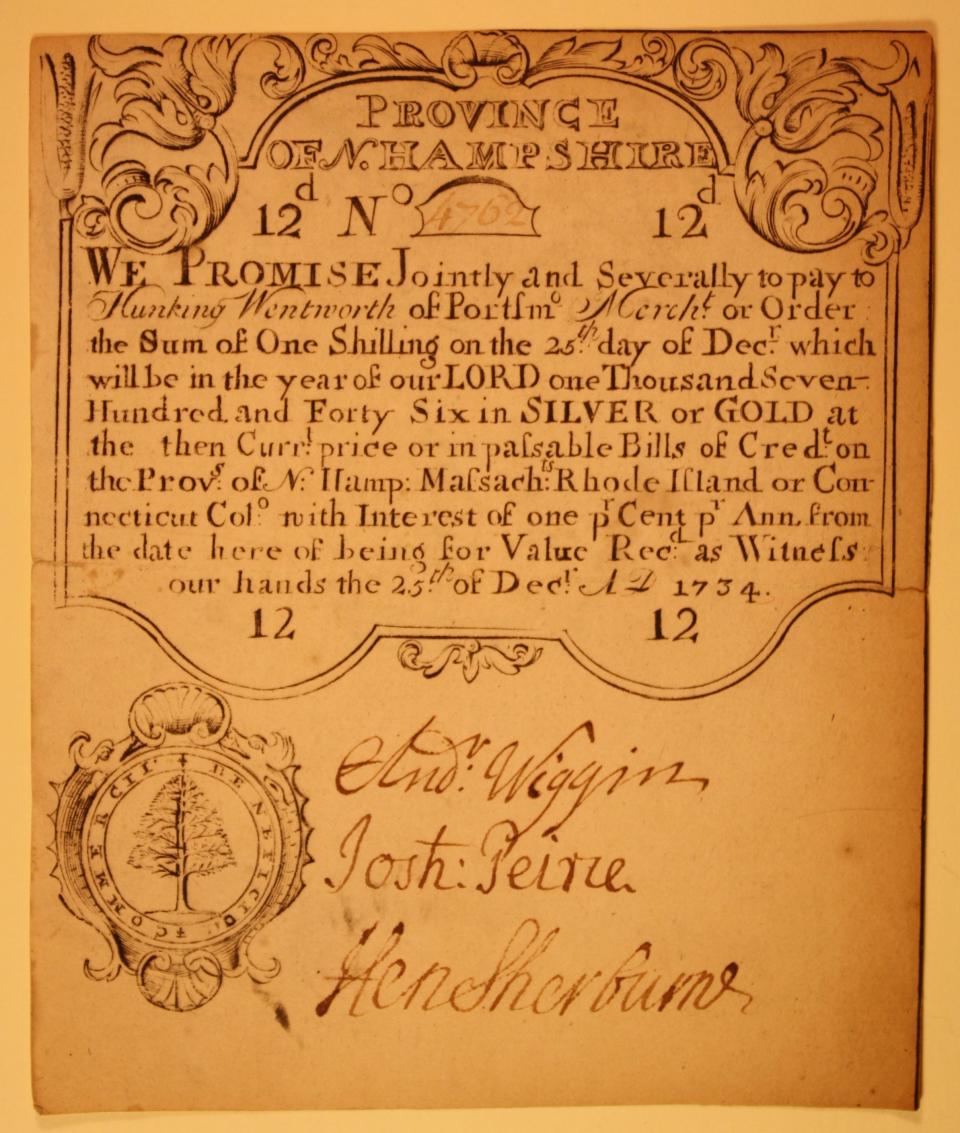
The exhibit will focus not just on the family, but the Wentworths' influence on Portsmouth architecture. Photos of Wentworth houses as well as family furniture and portraits will be included.
"It's timed to coincide with Portsmouth's celebration of its 400th," Rux said.
The opening reception is from 5 to 7 p.m. on April 14. The exhibit is open Tuesdays through Saturdays, 1 to 4 p.m. and runs through July 15.
Rux will give a talk on the exhibit on Saturday, April 15 at 11 a.m. in the Randall Gallery.
On June 21, Rux will present "Before 'Live Free or Die': The Wentworth Oligarchy 1715-1775." The talk is part of the Athenaeum lecture series, “Portsmouth, NH: Evolution 1623-2023 Part 2.”
Admission to the lecture is $10. By becoming a Friend of the Athenaeum for as little as $25 a year, admission is free to all six of this year's remaining lectures.
The Portsmouth Athenaeum, 9 Market Square, is a membership library and museum founded in 1817. The research library and Randall Gallery are open Tuesday through Saturday, 1 to 4 p.m. Masks are required in the research library. For more information, call 603-431-2538 or visit www.portsmouthathenaeum.org.
This article originally appeared on Portsmouth Herald: The rise and fall of NH's first first family at Portsmouth Athenaeum

